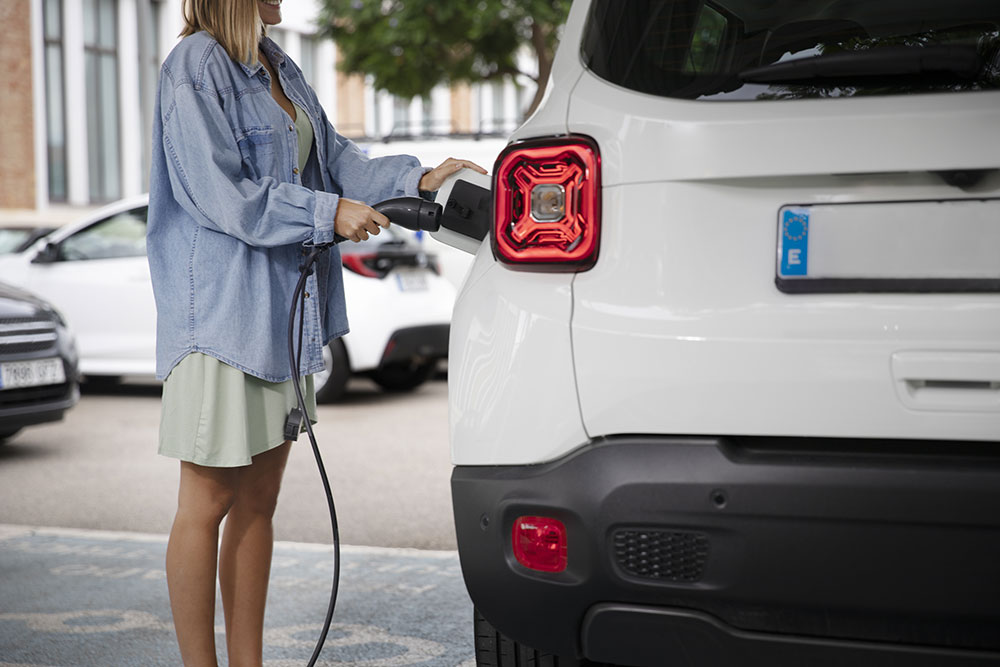As electric vehicles (EVs) continue to grow in popularity, it's becoming increasingly important to have a reliable portable car charger to charge your EV while on the go. One of the key considerations when choosing a portable car charger is how much power it can deliver, and with options such as 3.5 kW and 7 kW available from Taysla, it's important to understand how these power levels affect your EV charging needs.In this article, we'll analyse in detail the differences between these two options, how much power you really need and which scenarios each charger is best suited to.

The power output of a portable car charger is usually measured in kilowatts (kW), which represents the amount of energy transferred to the vehicle battery over time. Higher power levels mean faster charging, but the right choice depends on factors such as vehicle battery size, charging habits, and charging speed.
Here’s a quick comparison:
To better understand the difference in power between 3.5 kW and 7 kW chargers, let’s consider an example. Suppose you have an electric vehicle with a 40 kWh battery:
The size of your vehicle’s battery plays a crucial role in determining how much power you need from your portable car charger. Larger batteries (common in fully electric vehicles) will take longer to charge, so a higher-powered charger like a 7 kW model can significantly reduce the time spent charging.
If you have the flexibility to charge your vehicle overnight, a 3.5 kW charger may be enough to meet your needs. However, if you often find yourself needing quick top-ups or rely on shorter charging sessions, a 7 kW charger will provide much faster results.
For example, with a 7 kW charger, you can add around 30 miles of range per hour of charging, compared to approximately 15 miles per hour with a 3.5 kW charger. This can be a major advantage if you frequently drive longer distances or don't have extended periods to charge your vehicle.
Your home’s electrical capacity or the electrical infrastructure where you plan to use the charger also impacts your choice. A 3.5 kW portable car charger typically operates on a standard 16-amp outlet, making it compatible with most residential power supplies. This can be a convenient choice if you don’t have the ability to install a more powerful electrical connection.
A 7 kW charger , on the other hand, requires a 32-amp circuit, which might necessitate additional upgrades to your home’s wiring or access to higher-powered outlets. While the investment may be worthwhile for faster charging, it’s important to verify whether your electrical system can support this before making a decision.
To help illustrate the difference between these two power outputs, let’s look at a few real-world scenarios.
Imagine Sarah owns a plug-in hybrid vehicle with a 12 kWh battery. Her daily commute is about 25 miles, and she can easily recharge her car overnight at home. Since her vehicle’s battery is relatively small, a 3.5 kW portable car charger is more than sufficient to fully charge her battery in 3-4 hours. This charger would also be ideal for overnight charging, as Sarah doesn’t require rapid charging speeds.
John drives a fully electric vehicle with a 50 kWh battery. He regularly travels long distances and often needs to charge his car quickly between trips. For John, a 7 kW portable car charger would be far more practical, allowing him to fully recharge his battery in about 7 hours. This faster charging rate would ensure John doesn’t need to wait long between trips, making his charger much more convenient for his lifestyle.
Emma occasionally uses her EV for long road trips but primarily charges at home overnight. Her vehicle has a 30 kWh battery, and she typically plugs in her car for 8 hours or more. In this case, a 3.5 kW charger would meet her needs without requiring the installation of a higher-powered outlet. The slower charging rate is acceptable since she isn’t in a hurry to recharge, and the cost of upgrading to 7 kW isn’t necessary for her usage.
When deciding between a 3.5 kW and 7 kW portable car charger , here are a few key points to keep in mind:
When selecting a portable car charger , the choice between 3.5 kW and 7 kW depends on your vehicle’s battery size, your need for charging speed, and the capacity of your home’s electrical infrastructure. A 3.5 kW charger is typically sufficient for smaller EVs, plug-in hybrids, or drivers who have the luxury of longer charging times. However, for fully electric vehicles or drivers who need faster charging speeds, a 7 kW charger is the better option.
By considering your specific driving and charging needs, you can choose the right portable car charger that will keep your vehicle powered and ready to go whenever you need it.